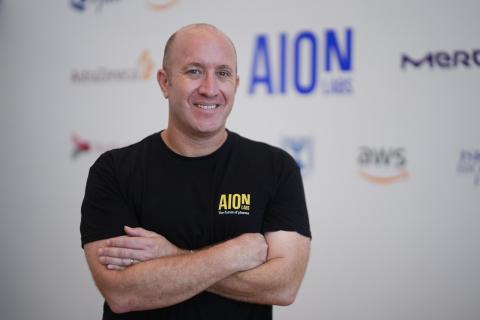Post-hype, pre-value: The real AI-pharma shift starts now

The AI-pharma gold rush of 2021–2022 was loud, dazzling, and, like many phenomena in tech, perhaps preceded its maturity. Billions of dollars in bets were placed on the promise that artificial intelligence would radically reshape how we discover and develop medicine. Start-ups raised jaw-dropping sums, fuelled by excitement more than evidence. Investors weren’t just backing companies, they were backing a vision of medicine reimagined through code.
By 2023, the tone had shifted. Venture capital cooled. According to CB Insights, funding for AI drug discovery start-ups dropped 45% from 2021 highs. Many early-stage firms struggled to raise follow-on rounds, and the media moved on. The hype subsided.
But that’s not the end of the story. It’s the beginning of a far more important one.
Because now, we are post-hype. But we are still pre-value. The first era of AI in pharma was built on potential. This next era will be built on proof, reinforcing even greater potential.
AI in research and development
AI has already begun to reshape the early stages of drug discovery. Algorithms can now mine massive datasets to identify new targets, optimise lead compounds, improve clinical trial success, and even simulate certain biological interactions. Companies like Exscientia, Insilico Medicine, and Israel’s Biolojic Design have brought AI-designed molecules into early clinical trials. Major pharma players, including Novo Nordisk and Eli Lilly, have signed large-scale deals with AI-driven platforms like BioMap and Recursion Pharmaceuticals. These aren’t symbolic partnerships. They reflect a strategic commitment to AI as a core pillar of R&D.
Yet, despite all this momentum, no AI-designed drug has yet to reach a stage to be ready to receive FDA approval – but that will come. This is not an indictment of their quality or scientific merit, but simply a reflection of the timelines involved. Drug development is a long, methodical process, and these compounds are still progressing through the necessary stages of clinical testing.
McKinsey estimates that AI could unlock $60 to $110 billion in annual value across the pharma industry, but most of that value is still waiting to be realised. Why? Because drug development is not a sprint. It is a regulated, risk-averse, deeply complex relay that demands rigorous validation, reproducibility and, above all, safety. It is also a vastly different scientific discipline. AI can’t yet simulate a full immune response. It can’t predict off-target effects with certainty. And it can’t, on its own, replace decades of biological insight and clinical trial infrastructure.
But the regulatory ground is shifting, and that, alongside remarkable technological developments, is what makes this moment so significant.
A risk-based framework
In January this year, the FDA’s Center for Drug Evaluation and Research (CDER) issued a draft guidance titled, Considerations for the Use of Artificial Intelligence to Support Regulatory Decision-Making for Drug and Biological Products. This guidance outlines a risk-based framework for assessing the credibility of AI models used in drug development and emphasises context-specific evaluations and transparency.
At the same time, the agency announced plans to accelerate the adoption of New Approach Methodologies (NAMs), including AI-based simulations, to complement or replace traditional animal testing. These initiatives remain intact and central to the FDA’s agenda, even amid broader structural changes across HHS. Internally, the FDA has begun rolling out AI tools across its centres, aiming to streamline regulatory workflows. The agency’s commitment to embracing AI as a pillar of drug development has proven resilient, strategic, and forward-looking – even when making dramatic cuts across the rest of the entire agency.
The next wave of AI innovation in pharma will be deeper, more ambitious, and more biologically grounded. Foundation models like Meta’s ESMFold and DeepMind’s AlphaFold 2 are unlocking structural biology at scale. Start-ups are building multimodal platforms that integrate genomic, chemical, clinical, and imaging data into unified models. These systems don’t just analyse one variable. They interpret biology holistically, potentially uncovering new mechanisms of disease or identifying patient subpopulations who will benefit most.
An AI-native future
And perhaps most importantly, we’re witnessing the birth of AI-native pharma companies. These companies don’t merely license tools to traditional players, they aim to own the full R&D stack, from computational discovery to regulatory strategy and commercialisation. These companies aren’t vendors. They’re end-to-end developers. Strategic partners. Future market leaders.
Between now and 2030, we’ll likely see the first truly AI-designed drugs reach regulatory approval. We will also see AI start-ups developing technologies that pharmaceutical companies will integrate into their R&D processes, supported by regulatory changes in the field. This adoption of AI will fundamentally change the pharma R&D workflow. Additionally, there will be acquisitions of such start-ups by pharmaceutical companies, big tech firms, Contract Research Organizations (CROs), and Contract Development and Manufacturing Organisations (CDMOs) aiming to become integrators and technology providers to the pharma industry.
The winners in this race will be the start-ups that address significant challenges with combined scientific and technological rigour, coupled with regulatory foresight. The ones who resisted shortcuts and built trust, step by step.
Realising AI’s full potential for pharma will require more than innovation alone. Policymakers, regulators, and industry leaders must now prioritise clear validation standards, collaborative infrastructure, and smart regulatory pathways that can keep pace with technological progress without compromising safety.
The opportunity is enormous, but so is the responsibility. We’ve moved past the buzz. Now comes the hard work – and the real value.
About the author
 Mati Gill is CEO of AION Labs, a venture studio built by a coalition of pharma heavyweights, tech giants, and leading investors to develop and integrate AI technologies to redefine drug discovery and development through the creation of new start-ups. Prior to founding AION Labs, Gill spent a decade as a senior executive at Teva Pharmaceuticals. Gill sits on numerous advisory boards and boards of director in the biotech industry.
Mati Gill is CEO of AION Labs, a venture studio built by a coalition of pharma heavyweights, tech giants, and leading investors to develop and integrate AI technologies to redefine drug discovery and development through the creation of new start-ups. Prior to founding AION Labs, Gill spent a decade as a senior executive at Teva Pharmaceuticals. Gill sits on numerous advisory boards and boards of director in the biotech industry.











